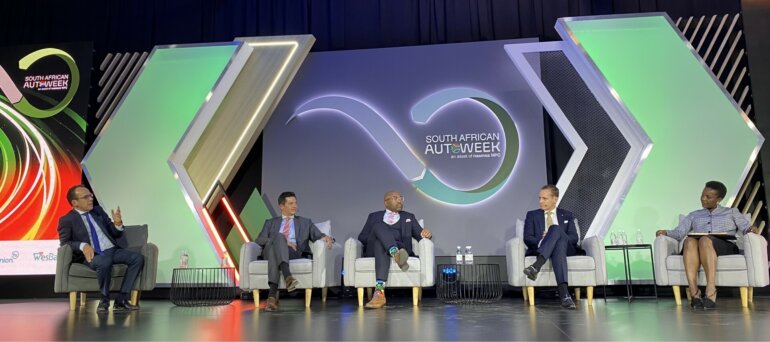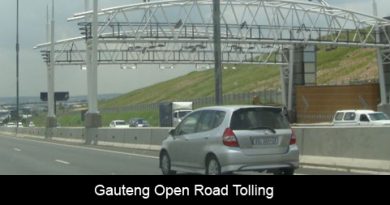Capital investment looks for certainty, policy framework, in switch to electric vehicles
“Capital investment in the local automotive industry, which includes the vehicle and asset finance houses, requires certainty in policy frameworks so it can make long-term predictions when getting involved in completely new projects such as the move to electric vehicles (EVs),” said Ghana Msibi, WesBank CEO, when participating in a plenary round table discussion at the South African Auto Week, held at the Kyalami Conference Centre late last month.
“It is not about an unwillingness to take risks. We require a settled environment before making decisions. We know what we need to do, but the way capital can play in the new world of mobility depends on the speed at which Government responds by providing the relevant policies and frameworks timeously, and creates an environment conducive to our active participation,” added Msibi.
The panel discussion, chaired by Dr. Martyn Davies, Africa Automotive Industry Leader at Deloitte, was originally scheduled to have concentrated on learnings from the COVID-19 pandemic and how South Africa could emerge stronger to shape a dynamic world order for the local economy and the automotive industry. However, it was changed to focus on what is needed to activate the power shift from internal combustion engines (ICE) to EVs.
“The current hurdle is that the Government cannot get the basic hygiene issues right in terms of a long-term EV policy. There seems to be too much politicising and philosophising on issues, with another example being the long delay in finalising the spectrum issue. Most of all we need accountability and partnership from the Government so we can make our decisions with confidence,” added Msibi.
Another panelist, Prof. Busisiwe Mavuso, CEO of Business Leadership South Africa (BLSA), concurred with Msibi saying that the Government should get the basics right and have the political will to implement what needs to be done.
Msibi continued by saying that naamsa’s concept of the South African Auto Week was excellent as it provided the ideal opportunity for the various role players to connect and interact and share for the benefit of all.
“It is proven that to be an effective catalyst business, where previously, the various sectors had tended to talk to themselves, while now they were able to talk to each other in meaningful discussion sessions as well as on the sidelines of the conference.
“The time for decision making has arrived as the strong balance sheets coming out post-COVID-19 are indicating that there is money around, so now we must partner for delivery,” said the WesBank CEO.
When asked by Davies what would be coming next from the world of vehicle finance, Msibi said there is a fixation on product, while the area of focus should be more on services, where the financing options are on a connected platform that includes much more than just vehicle financing.
“We need to build the business beyond finance and into adjacent industries. More than 70% of vehicle purchases in South Africa are financed and the challenge is that we need to democratise mobility to make it accessible to more people.”
In concluding, Msibi said that he was confident that the positioning of the South African automotive industry in Africa – particularly with the acceptance of the Continental Free Trade Area (AfCFTA) – as the continent seeks to grow as the last frontier of the global automotive industry.




